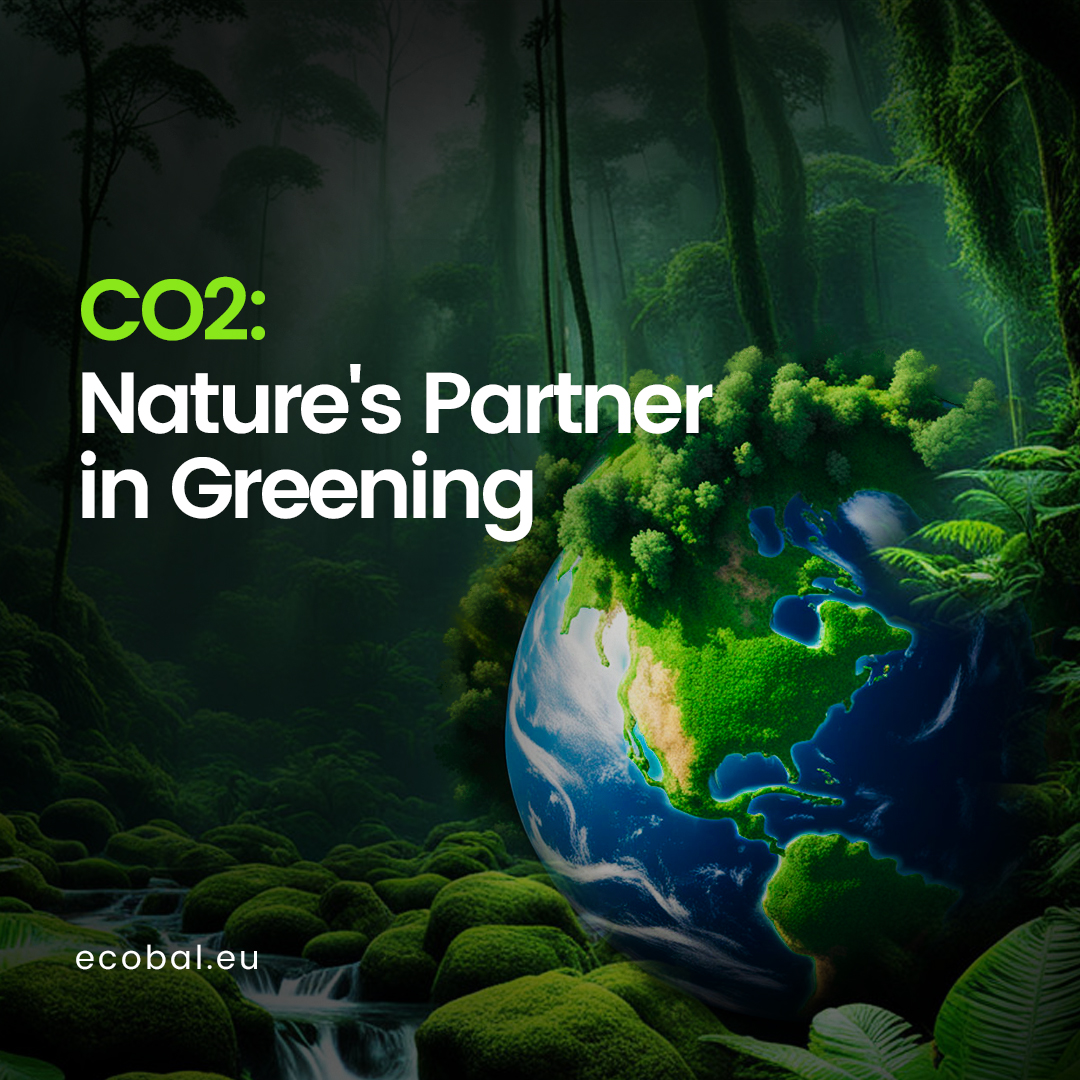CO2: A Catalyst for a Greener Earth
Over the last few decades, the face of our planet has transformed in a way that might surprise many: there’s been a significant increase in the extent of green vegetation. Recent scientific studies, supported by satellite data, reveal that the amount of leaves per area—across vast stretches of land and even parts of the oceans—has substantially grown. It turns out, our blue planet is becoming greener by the day.
It’s easy to cast carbon dioxide (CO2) as the villain in our climate story, given its significant role in global warming. Yet, a 2024 study in Global Ecology and Conservation by Xin Chen and colleagues offers a compelling counter-narrative—CO2 is also greening our planet more than we realized. Let’s explore how this oft-maligned molecule is contributing to “planet greening”.
The Surprising Effects of CO2
According to the study, CO2 is far more than just a greenhouse gas; it plays a crucial role in the global greening phenomenon, enhancing plant growth across the globe. Research indicates that the increase in CO2 has substantially boosted the LAI (leaf area index)—a measure of leaf coverage per square meter of ground—leading to more robust plant growth and expanded green spaces.
Here’s how it’s making a difference:
1. Enhanced Plant Growth
- Natural Fertilizer: CO2 acts as a natural fertilizer. Increased atmospheric CO2 levels enhance photosynthesis, enabling plants to grow more robustly by using energy from sunlight to transform CO2 and water into carbohydrates, releasing oxygen in the process.
- Global Greening: Satellite data from 2001 to 2020 reveals a significant increase in global leaf coverage, measured by the Leaf Area Index (LAI). This greening is particularly noticeable at desert margins, where drought resistance is critical.
- Yield Increase: An increase in ambient CO2 to 800-1,000 ppm can increase yield of C3 plants up to 40%-100% and C4 plants by 10%-25% while keeping other inputs at an optimum level. Plants show a positive response up to 700 to a need of 1,800 parts per million, but higher levels of CO2 may cause plant damage.
2. Resilience Against Drought
- Mitigating Drought Effects: Despite rising temperatures and more frequent droughts, higher CO2 levels help plants use water more efficiently, allowing them to thrive even in less favorable conditions.
- Sustained Greening: The remarkable planetary greening observed in recent decades is largely due to a 30% increase in CO2 from preindustrial levels. This adaptation helps plants cope better with drought, contributing to the greening of arid regions.
3. Climate Change Interactions
- Carbon Capture: More foliage means more carbon capture, which help mitigate the effects of climate change by removing CO2 from the atmosphere.
- Cooling the Earth: Increased green cover can potentially lower surface temperatures, contributing to local and possibly global cooling.
The Role of CO2 in Our Future
Understanding this new aspect of CO2—as both a contributor to and a mitigator of climate challenges—is crucial for a better and updated understanding of nature.
Here’s what we should consider moving forward:
- Balanced Climate Strategies: Recognizing the positive aspects of CO2 alongside its drawbacks can lead to more balanced and effective climate strategies.
- Innovative Solutions: Exploring ways to enhance the beneficial effects of CO2 while reducing its negative impacts is key to future sustainability efforts.
- Continued Research: Ongoing research is essential to fully understand CO2’s role and harness its potential benefits effectively.
As we embrace the complexities of CO2, organizations like ECB Dynamics are crucial in turning challenges into opportunities. ECB Dynamics’s mission resonates deeply with the themes discussed here—restoring and preserving vital natural habitats while integrating these efforts into the global economy. Their commitment to advanced carbon sequestration and sustainable land management practices enhances biodiversity but also leverages the greening potential of CO2.
In conclusion, CO2’s story is not just one of challenge but also opportunity. We can foster a sustainable future where CO2’s role as a climate challenge is balanced with its potential as a catalyst for greening our world. Let’s not overlook the potential of CO2 to contribute positively to our world!
For more information like this visit https://ECB Dynamics.eu/category/blog/ECB Dynamics/


